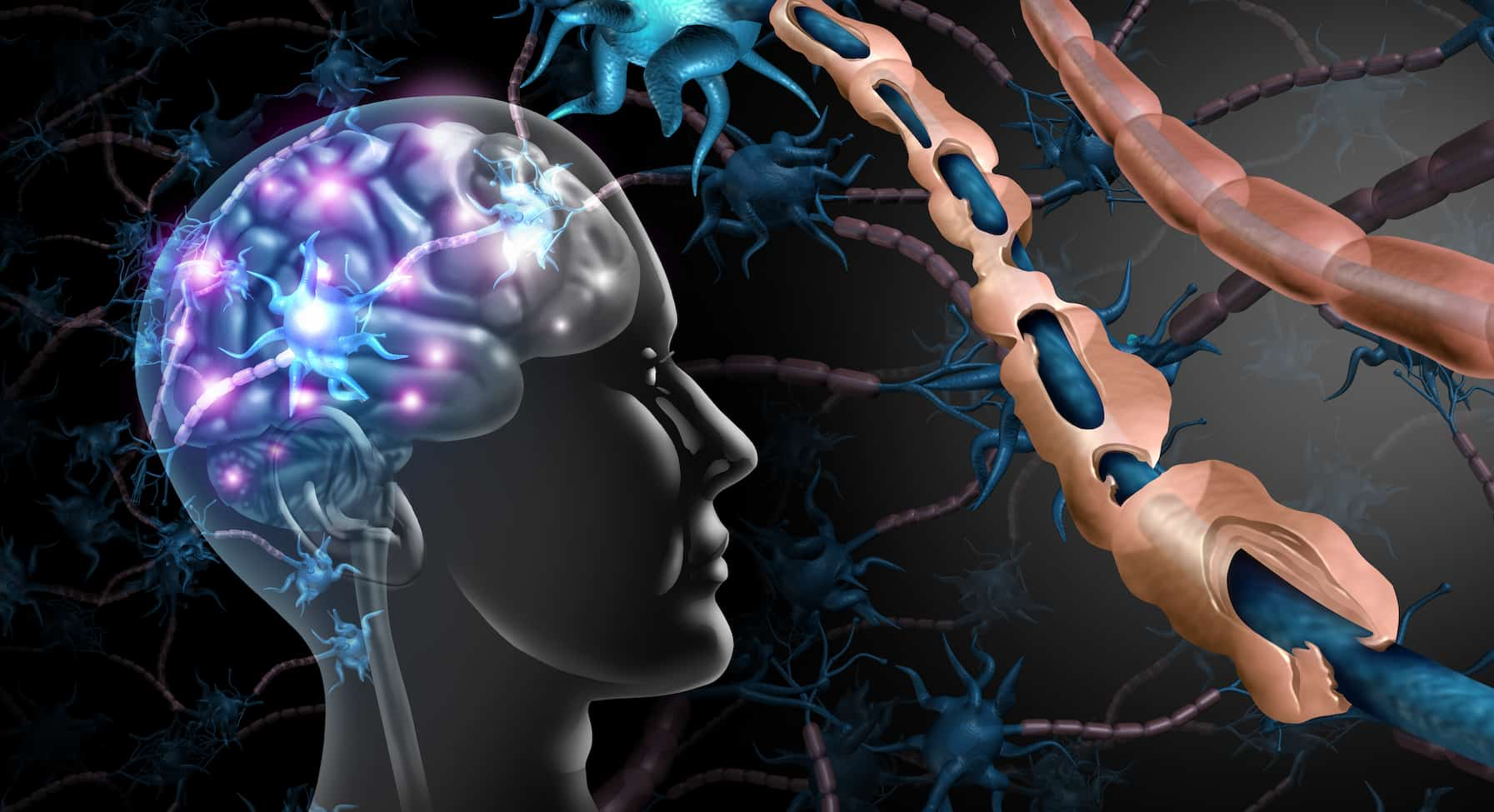
Prevent Multiple Sclerosis
Multiple Sclerosis (MS) is a chronic autoimmune disease that affects the central nervous system, specifically the brain and spinal cord. MS is characterized by the destruction of myelin, a protective coating that surrounds nerve fibers and aids in the transmission of nerve impulses.
As a result, individuals with MS may experience a range of symptoms including weakness, fatigue, vision problems, difficulty with coordination and balance, and cognitive impairment. MS is a complex condition that has no cure, but there are steps that can be taken to prevent or slow its progression.
Can MS be Prevented?
The exact cause of the disease is unknown, and research has not yet identified a clear way to stop its development. However, there are certain risk factors that can be addressed to potentially reduce the likelihood of developing MS. For example, maintaining a healthy lifestyle, including regular exercise and a well-balanced diet, may help to reduce the risk of developing MS. Additionally, avoiding smoking and excessive alcohol consumption may also help to lower the risk of developing MS.
One area of research that has gained attention in recent years is the role of diet in MS prevention. While no specific diet has been proven to prevent MS, studies have shown that certain dietary factors may play a role in the development of the disease.
For example, a diet high in saturated fat and processed foods may increase the risk of developing MS. On the other hand, a diet rich in fruits, vegetables, and whole grains may help to reduce the risk of developing MS. Additionally, vitamin D, which is found in fatty fish and fortified dairy products, has been linked to a lower risk of MS development.

Who’s at Risk for MS?
While anyone can develop MS, certain factors increase the risk of developing the disease. MS is more common in women than men, and it is typically diagnosed between the ages of 20 and 40.
Family history also plays a role in MS development, with individuals who have a first-degree relative with the disease being at a higher risk of developing MS themselves. Additionally, certain ethnic groups, such as those of Northern European descent, are at a higher risk for developing MS.
What Increases Risk of MS?
Several factors can increase an individual’s risk of developing MS. In addition to family history, certain environmental factors may also play a role. For example, individuals who live in northern latitudes, where there is less sunlight and lower levels of vitamin D, may be at a higher risk of developing MS.
Exposure to certain viruses, such as the Epstein-Barr virus, has also been linked to MS development. Additionally, smoking and obesity have been identified as potential risk factors for MS.
Are There Triggers for MS?
While there is no single trigger for MS, certain factors can cause symptoms to flare up or worsen. Stress, infections, and extreme temperatures are all known to exacerbate MS symptoms. In addition, certain medications, such as some antidepressants and high blood pressure medications, may also worsen MS symptoms.
What are Usually the First Signs of MS?
The early symptoms of MS can vary from person to person, but some common signs include vision problems, such as blurred or double vision, as well as numbness or tingling in the extremities. Fatigue and muscle weakness are also common early symptoms of MS. As the disease progresses, individuals may experience difficulty with coordination and balance.
What Causes Multiple Sclerosis?
The exact cause of MS is still unknown, but researchers believe that a combination of genetic and environmental factors may play a role. In MS, the immune system mistakenly attacks the myelin coating that surrounds nerve fibers in the central nervous system. This results in damage to the nerve fibers themselves, leading to the symptoms associated with MS.
How to Slow the Progression of MS?
While there is no cure for MS, there are several treatments that can help to slow its progression and manage symptoms. Disease-modifying therapies (DMTs) are a group of medications that work to slow the progression of MS by reducing the frequency and severity of relapses. These medications work by modifying the immune system’s response to the disease. There are several different types of DMTs available, and the choice of medication will depend on the individual’s specific type of MS and other factors such as age and overall health.
In addition to medications, there are several lifestyle changes that can help to slow the progression of MS. Regular exercise, a healthy diet, and stress management techniques such as meditation and yoga can all help to improve overall health and reduce the risk of MS symptoms flaring up. It is also important to maintain regular appointments with healthcare providers to monitor the progression of the disease and adjust treatment plans as needed.
Can You Live A Normal Life With MS?
Although MS is a chronic condition that can be challenging to manage, many individuals with MS are able to lead full and active lives. With proper treatment and self-care, it is possible to manage symptoms and prevent or slow the progression of the disease. Additionally, there are many resources available to individuals with MS, including support groups and advocacy organizations, that can provide information and support.
The Study of Multiple Sclerosis Prevention
A comprehensive study published in 2020 investigated the impact of dietary factors on the development of Multiple Sclerosis (MS). The study, conducted over a period of 10 years with a large sample size, demonstrated a correlation between a diet high in saturated fat and processed foods and an increased risk of MS. Conversely, participants adhering to a diet rich in fruits, vegetables, and whole grains showed a significant reduction in the risk of developing MS. This research provides valuable insights into the role of diet as a preventive measure against MS, contributing to a more reliable understanding of lifestyle factors associated with the disease.
Preventing MS In Family Members
If you have a family history of MS, you may be wondering what you can do to help prevent the disease in yourself or your children. While there is no surefire way to prevent MS, there are steps that can be taken to potentially reduce the risk of developing the disease. One of the most important steps is to maintain a healthy lifestyle, including regular exercise and a well-balanced diet. Additionally, avoiding smoking and excessive alcohol consumption may also help to lower the risk of developing MS.
If you have a family member with MS, it is also important to be aware of the early warning signs of the disease. Early intervention and treatment can help to slow the progression of MS and manage symptoms. If you or a family member experiences symptoms such as vision problems, numbness or tingling, or difficulty with coordination or balance, it is important to seek medical attention as soon as possible.
MS Prevention Diet
While no specific diet has been proven to prevent MS, there are certain dietary factors that may play a role in the development of the disease. A diet high in saturated fat and processed foods may increase the risk of developing MS, while a diet rich in fruits, vegetables, and whole grains may help to reduce the risk of developing MS. Additionally, vitamin D, which is found in fatty fish and fortified dairy products, has been linked to a lower risk of MS development.
It is also important to maintain a healthy weight and avoid excessive alcohol consumption, as these factors have been identified as potential risk factors for MS. Individuals with MS may also benefit from working with a registered dietitian to develop a personalized nutrition plan that can help to manage symptoms and improve overall health.
MS Treatment
There are several treatments available that can help to manage symptoms and slow the progression of the disease. Disease-modifying therapies (DMTs) are a group of medications that work to slow the progression of MS by reducing the frequency and severity of relapses. In addition to medications, lifestyle changes such as regular exercise, stress management techniques, and a healthy diet can also help to manage symptoms and improve overall health.
In addition to medical treatment, individuals with MS may benefit from working with a team of healthcare providers including a neurologist, physical therapist, occupational therapist, and mental health professional. This multidisciplinary approach can help to address the physical, emotional, and social aspects of the disease and improve the overall quality of life.
Prevent MS with Healthy Türkiye
There are steps that can be taken to prevent or slow its progression. Maintaining a healthy lifestyle, including regular exercise, stress management techniques, and a well-balanced diet can help to reduce the risk of developing MS and manage symptoms for those who have already been diagnosed. Additionally, working with a team of healthcare providers and taking disease-modifying therapies can help to slow the progression of MS and improve the overall quality of life.
It is also important to be aware of the early warning signs of MS, such as vision problems, numbness or tingling, and difficulty with coordination or balance. Early intervention and treatment can help to manage symptoms and slow the progression of the disease. If you or a loved one is experiencing these symptoms, it is important to seek medical attention as soon as possible.
For those with a family history of MS, maintaining a healthy lifestyle and being aware of the early warning signs of the disease can help to potentially prevent or manage the disease. Additionally, working with healthcare providers and support groups can provide valuable information and support for those affected by MS.
Overall, while MS can be a challenging and unpredictable disease, there are steps that can be taken to manage symptoms and slow its progression. With proper treatment and self-care, many individuals with MS are able to lead full and active lives.




